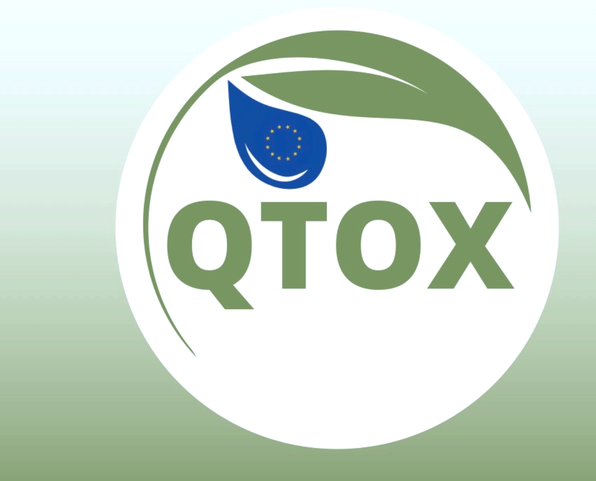Marie Skłodowska-Curie Action Doctoral Network - QTOX
Introduction
HORIZON-MSCA-2021-DN-01 QTOX (Quantitative Extrapolation in Ecotoxicology) will develop mechanistic knowledge and data-efficient modelling tools to bridge the gap between standard toxicity data and ecologically relevant endpoints arising from chronic, time variable exposures to chemical mixtures. The results will be achieved through an interdisciplinary and intersectoral research and training program in which 10 Doctoral Candidates (DCs) will characterise the mechanistic processes describing the successive events from exposure to ecosystem-level effects and develop models for extrapolation of adverse effects across levels of biological organization under environmentally realistic conditions. The QTOX network is compost of 7 European Universities and 8 non-academic associated partners including Industry, Government agencies, Consultants, and research organizations. The project is coordinated by University of Antwerp (Belgium).
Project description
The assumption that adverse effects of chemicals can be meaningfully extrapolated from laboratory test conditions (in-vitro and in-vivo) to the ecosystem level is inherently embedded in the development of European policies concerned with safe use of chemicals (REACh), The Green Deal and its Chemicals Strategy for Sustainability Towards a Toxic-free Environment, and protection of ecosystem functioning and ecosystem services, e.g.Water Framework Directive. Also, the availability of extrapolation methods underpins efforts to reduce, replace, and refine the use of animals in toxicity testing. However, current methods for extrapolation of adverse effects across levels of biological organisation are predominantly empirical with consequent limitations in their predictive capabilities and application. This lack of mechanistic underpinning raises questions about the robustness of environmental quality standards and confounds efforts to identify the cause of adverse effects and to design effective remediation strategies. The overall aim of QTOX is to address this situation via development of quantitative extrapolation tools based on mechanistic knowledge of the underlying processes in the chain from exposure to effects, across all levels of biological organisation, with close connection to regulatory endpoints, and under environmentally realistic conditions, i.e., including the dynamics of chronic exposures to mixtures of chemicals. The aim is to develop predictive models for describing the adverse effects of chemicals under realistic long-term exposure scenarios based on systematic knowledge acquired under laboratory and semi-field conditions.
The PhD students will benefit from international, interdisciplinary, and intersectoral training, which combines training through research and through education. As uniqueness, the QTOX training programme couples a strong component of mechanistic modelling with mesocosm level studies. An innovative and uniting aspect of the training is the involvement of all doctoral candidates in implementing and interpreting mesocosm experiments.
Training Objectives of QTOX:
- To train DCs in scientific knowledge and technical skills necessary for implementing research projects in quantitative ecotoxicology in an interdisciplinary and intersectoral environment.
- To train DCs in toxicological modelling, including the development, parameterization, and validation of models at different levels of ecological complexity.
- To equip DCs with a range of transferable skills that optimize their career perspectives.
- To provide the DCs with research experience outside the academic sector.
Role of Ghent University
Ghent University will be the main supervisor of one Doctoral Candidate in population models with the objective to establish quantitative dynamic energy budget models for the prediction of chemical effects at the level of populations. Ghent university will also co-organize an open training course on population models in ecotoxicology.
Website
Contact
Prof. Dr. Karel De Schamphelaere
Department: Environmental Toxicology unit (GhEnToxLab)
Phone number: +32 9 264 37 64
E-mail
